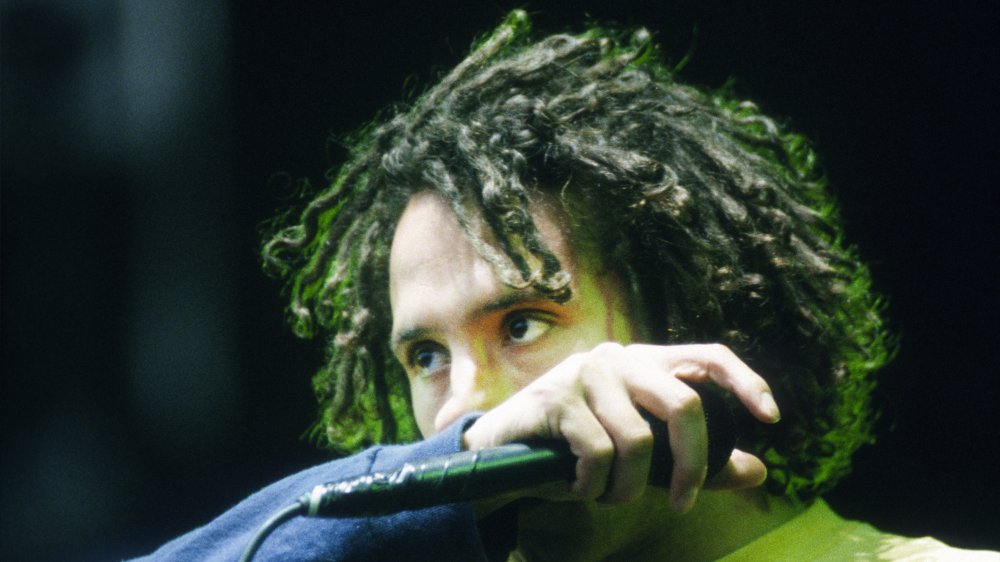Discover The Life Of Olivia Lorryne Carter: Zack De La Rocha's Mom
Is it possible for a parent's influence to indelibly shape the life of a cultural icon? The story of Olivia Lorryne Carter, mother of the iconic Zack de la Rocha, provides a resounding affirmative.
Olivia Lorryne Carter, a name often mentioned in the context of her famous son, the vocalist of Rage Against the Machine, is an individual whose life has intertwined with significant cultural and social movements. Born in 1941, Carter's life has been a journey marked by activism, intellectual pursuits, and the rearing of a son who would become a voice of a generation. The details of her life, from her academic achievements to her role in shaping Zack de la Rocha's values, offer a compelling narrative of influence and resilience. Her influence can be seen in her son's lyrical content and social activism.
| Category | Details |
|---|---|
| Full Name | Olivia Lorryne Carter |
| Born | 1941 |
| Known For | Mother of Zack de la Rocha; Activist; Anthropology Scholar |
| Education | Bachelor's degree in Anthropology |
| Family | Son: Zack de la Rocha; Father of Zack de la Rocha : Robert Beto de la Rocha |
| Residence | Irvine, California (as per some sources) |
| Activism | Committed activist (details of specific causes are limited in the provided text) |
| Influence on Son | Significant in shaping musical and political passions |
Zack de la Rocha's life began on January 12, 1970, in Long Beach, California. He was born to Olivia Lorryne Carter and Robert "Beto" de la Rocha. His father, an artist and muralist associated with the Chicano art collective "Los Four," played a crucial role in Zack's cultural upbringing. The senior de la Rocha was also a political activist, influencing Zack's early worldview. His mother, Olivia, was a committed activist and an anthropology scholar, adding another layer of intellectual and social awareness to his formative years. This multicultural upbringing provided a unique perspective on race, identity, and inequality that would later become central to his music.
The family dynamic shifted when Zack's parents divorced when he was still a baby. Raised primarily by his mother, Olivia Lorryne Carter, in Irvine, California, Zack experienced the complexities of navigating a predominantly white environment. This exposure to racism and bullying, rooted in his Mexican heritage, significantly impacted his personal and artistic development. His mother was disgusted by it, as De La Rocha says.
The city of Irvine, with its suburban landscape, presented a stark contrast to the more diverse cultural background Zack had inherited. It was there, amidst this social landscape, that he confronted prejudice and developed a keen sense of social justice. The challenges he faced in Irvine, combined with the cultural influences of his parents, sowed the seeds for his future as a politically charged artist.
Zack's paternal heritage also had a significant influence. His father, Roberto "Beto" de la Rocha, was a renowned artist and muralist. His artistic expression and political involvement, provided a critical framework for Zack's developing consciousness. The elder de la Rocha's work, often depicting Mexican farmworkers, and his role as a political activist, instilled a sense of social awareness. This artistic and political environment profoundly influenced his sons musical and political passions.
Olivia Lorryne Carter's intellectual background also played a vital role. She obtained a bachelor's degree in anthropology. This academic pursuit, combined with her activism, undoubtedly contributed to the intellectual climate in which Zack grew up. The environment provided a dynamic interplay of artistic expression, intellectual inquiry, and social activism. This diverse environment allowed him to form his unique perspective on race, identity, and social inequality.
The impact of Olivia Lorryne Carter extended beyond her role as a parent. She was a key figure in his life, helping him navigate the societal complexities that he encountered growing up. She was well aware of the ignorance that permeated the town. The shared experiences, discussions, and support provided by his mother were essential in shaping the musician's identity.
The influence of Olivia Lorryne Carter can be seen in Zack de la Rocha's work. His lyrics often address social injustices, inequality, and political corruption. His music became a powerful platform for social and political commentary. This artistic direction is a direct reflection of the values instilled in him during his childhood. It demonstrates the profound influence of parents, especially a mother, on their children.
The story of Olivia Lorryne Carter is more than just the tale of Zack de la Rochas mother; it is a narrative of the enduring power of influence, the significance of social awareness, and the impact of parental guidance on shaping the life and work of a cultural icon. Her dedication to activism and intellectual curiosity shaped her son's worldview. Olivia Lorryne Carters story is a testament to the enduring power of parental influence and the profound impact that it can have on a child's life.
The family history also includes Manuel Garca Urias, Zack's maternal grandfather. A Mexican emigrant from Cananea, Sonora, Manuel later became Bradley Manuel Carter. His ancestry, along with that of Zack's great-grandparents, Braulio Garca and Mara de la Nieves Camacho, provides a glimpse into the multi-ethnic heritage that influenced Zacks cultural upbringing. This varied heritage helped him connect with diverse communities and gain a unique perspective on race and identity, which would later shape his music and activism.



